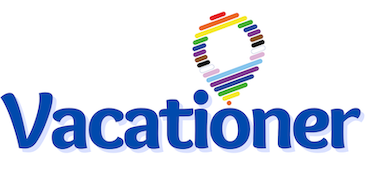
Become a Digital Nomad in 7 Simple Steps
Work and travel? Travel for work? Yes please! An expert reveals how to land jobs that fund your digital nomad dreams.
The average American worker receives 10 to 14 days of paid vacation time per year after one year of service, according to the U.S. Bureau of Labor Statistics (BLS). If you were born with wanderlust, chances are you’re feeling like this is no way to live out your existence! But don’t fret. There are some options and strategies for you in a labor landscape that has and continues to undergo massive change.
The traditional 9-to-5 office model is becoming a relic of the past, replaced by more flexible working arrangements that accommodate the evolving needs and desires of today’s workforce.

The rise of remote work and flexible job arrangements has presented an opportunity for aspiring digital nomads looking to achieve both personal satisfaction and professional fulfillment, or, more specifically, hoping to travel the world while pursuing a career. With businesses embracing tools and strategies that support distributed teams, employees have gained unprecedented freedom to choose their work environment and schedule.
As Julia Yurchak, Senior Recruitment Consultant at Keller Executive Search, explains, “This new way of working is here to stay. It gives professionals the freedom to build careers that truly fit their lives.” While remote work opportunities are in high demand, there are specific strategies that can help you stand out in this competitive landscape.
Here, Julia explains how to land a paying gig that allows you to both travel the world and advance your career.
#1 Embrace Freelancing
Consider freelancing or consulting. Platforms like Upwork, Freelancer, and Fiverr allow you to take on projects from anywhere in the world, providing flexibility and control over your schedule.
#2 Explore Travel-Specific Roles
Look for jobs in the travel sector, such as travel blogging, vlogging, or photography. “Roles like tour guide, travel agent, or working for travel apps and websites can combine work with travel experiences,” suggests Julia.
#3 Target Flexible Companies
Research companies are known for their flexible work culture. Some companies promote work-life balance and allow employees to set their schedules or work remotely part-time.

#4 Be Transparent in Interviews
During job interviews, openly discuss your desire to work and travel. “Make sure your prospective employer supports flexible work arrangements and has a culture that aligns with your lifestyle so there’s no confusion later on down the road,” says Julia.
#5 Build a Portable Skill Set
Develop your skills in areas that lend themselves to remote work, such as digital marketing, graphic design, coding, or teaching languages online. Portable skills make it easier to find work-from-anywhere jobs.
#5 Consider Seasonal Work
Seasonal jobs, such as ski instructors, holiday resort staff, or adventure guides, often require travel and offer work during specific times of the year, giving you freedom in the off-season. This is great for someone who doesn’t want to constantly be chained to a computer.

#6 Invest in Quality Equipment
Don’t skimp on necessary tech tools like a reliable laptop, noise-canceling headphones, and a portable Wi-Fi device to ensure you can work efficiently from any location. “Prospective employers want to see that you take your business seriously if they are going to trust you to work unsupervised,” adds Julia.

#7 Network and Connect
Just like in the real world, it pays to join communities and forums dedicated to digital nomads and remote workers. Networking online with like-minded individuals can provide job leads, advice, and support.
Julia Yurchak, Senior Recruitment Consultant Keller Executive Search Comments: “Securing a remote job offers several significant personal and professional growth advantages. Employees can design their work schedules around personal commitments, leading to a better work-life balance. This flexibility allows individuals to work during their most productive hours, boosting efficiency and job satisfaction.”
“This all-online environment helps to create a results-oriented work culture, where performance is measured by outcomes rather than hours spent in an office, allowing employees to focus on what really matters. As technology continues on its unstoppable growth trajectory, the trend towards remote work may also continue to increase, offering a sustainable and balanced approach to modern employment.”




